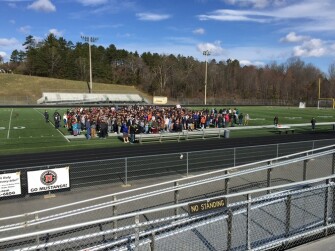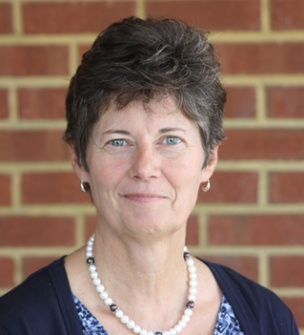
Pam Moran and Debbie Collins are the superintendent and assistant superintendent, respectively, of Albemarle County Public Schools (Va.), near the city of Charlottesville. The Learning is Social and Emotional team spoke with Moran and Collins about how the district is approaching student agency and voice, and how it connects with their ongoing work to support students’ social, emotional, and academic development. This is part two of that conversation. Read part 1 here.
4. What challenges has ACPS faced in implementing this work?
Pam: Funding is an obvious challenge that all educators face to some extent. During the recession, there was a lot of pressure on us to figure out how to trim our budgets. And responsive classrooms, for example, are not an inexpensive approach. We’re talking about training for all our teachers. So one of the things we had to do was figure out how to keep funding in place to sustain our commitment to that professional development work, and it wasn’t easy.

Debbie: We did have to make sacrifices during the recession to keep our social and emotional focus in place. We gave up key central office personnel and key professional development to ensure that professional learning around things like Responsive Classroom continued. But we felt it was so important that we couldn’t back off. To sell that trade-off to teachers, we then had to make sure that they understood the “why,” because effective social and emotional development happens throughout the school day, not just as a tack-on.
Pam: The other challenge is that there are people who see social and emotional learning as being “touchy-feely” and a waste of time. Part of developing social and emotional awareness and decision making is learning how to make choices. So we very purposely have built in opportunities for kids to have dialogue and disagree with one another, and that kind of challenges the old model of teaching where the teacher was always right and it was a more controlled environment.
Debbie: Seminars are a great example. On one hand, we think students should have the seminar experience in high school. On the other, there’s not much time to incorporate it. Our freshman seminar course started competing with electives and our values began to clash. I think in those cases, you have to step back from the short-term concerns and think about the long-term payoff. We have our challenges, but what we all want is that every child gets what they need to be successful. And I don’t think you can do that by isolating social and emotional learning from academics or from physical health. We think they’re all important.
5. What advice do you have for other districts who are looking for ways to elevate student voice and agency?
Debbie: Get students in the room and talk to them! If you just ask a couple questions and then listen, they’ll tell you which way to go.
Pam: When we asked our student panel what they wanted in their teachers, they didn’t say “I want a teacher who’s good at math.” They said things like, “I want a teacher who cares.” “I want a teacher who likes to smile.” “I want a teacher who’s not always by the book.” They want to know their teachers; they want teachers who take an interest in them.
Debbie: When teachers hear that, it changes their heart. It brings you back to why you went into this work. That part of you that’s always hopeful. Students do that in a way that an administrator could never do.
Pam: Sometimes our students challenge us, because they don’t always say what we want to hear. But if we remain open, we can learn things from our children, whether they’re 18 or 11 or 5. Our core value is our young people. Not because of who they’ll be, but because of who they are.
Photos, from top: Photo of Albemarle County Public Schools students (courtesy of ACPS), Photo of Debbie Collins (courtesy of ACPS)